This 27-YO Left Engineering to Build a Rs 12 Lakh-a-Month Zero-Waste Cafe That’s Changing How Kids Eat
“I used to hate eating vegetables and millets,” admits 10-year-old Jahnavi Nanda. “Once, my mum gave me ragi for dinner, and I was not very happy to eat it.” Similarly, eight-year-old Kabir recalls his aversion to anything remotely healthy. “I always thought healthy food tasted bland and boring,” he says with a shy grin. “I was far more interested in munching on crisps and chocolates during my meals.”
For children growing up in an age of sugar-laden cereals and colourful packaging, the idea of eating for wellness rather than taste feels foreign. But a change is taking root in Gujarat, as more people begin to rediscover the value of ancient grains. Slowly, children are beginning to change, not just in what they choose to eat, but in how they think about food and the world around them.
At the centre of this change is a small cafe. It does not look extraordinary from the outside, but inside, it is helping to shape new habits, kinder choices, and a better understanding of where our food comes from.
The engineer who returned to her roots
That place is ‘Cafe Aarambh’, which means ‘beginning’ in Hindi. It was founded by 27-year-old Nishtha Chauhan, an electronics and communications engineer who left a promising career in aerospace to return to the earth, quite literally. Instead of the conventional corporate path, Nishtha chose to till the soil, grind millets and compost kitchen scraps.
Her journey is not a spontaneous detour. Raised in a modest Gujarati household, she grew up surrounded by the wisdom of her grandfather, a millet practitioner who firmly believed in the goodness of ancient grains like ragi (finger millet), jowar (sorghum), bajra (pearl millet), and little millet. Mealtimes at home were simple and wholesome.
She had grown up accustomed to seeing all the kitchen’s wet waste carefully composted. “At the time, I did not think much of it,” she tells The Better India. “But once I became an adult and looked around me, I began to realise just how deeply those habits were ingrained in me, and how important they really are.”
After graduating from Lalbhai Dalpatbhai College of Engineering, Nishtha joined Azista Aerospace, where she worked on satellite payloads in collaboration with the Indian Space Research Organisation (ISRO). It was an exciting work which was intellectually demanding and high-profile. But amid the sterile labs and long hours, she felt increasingly disconnected.
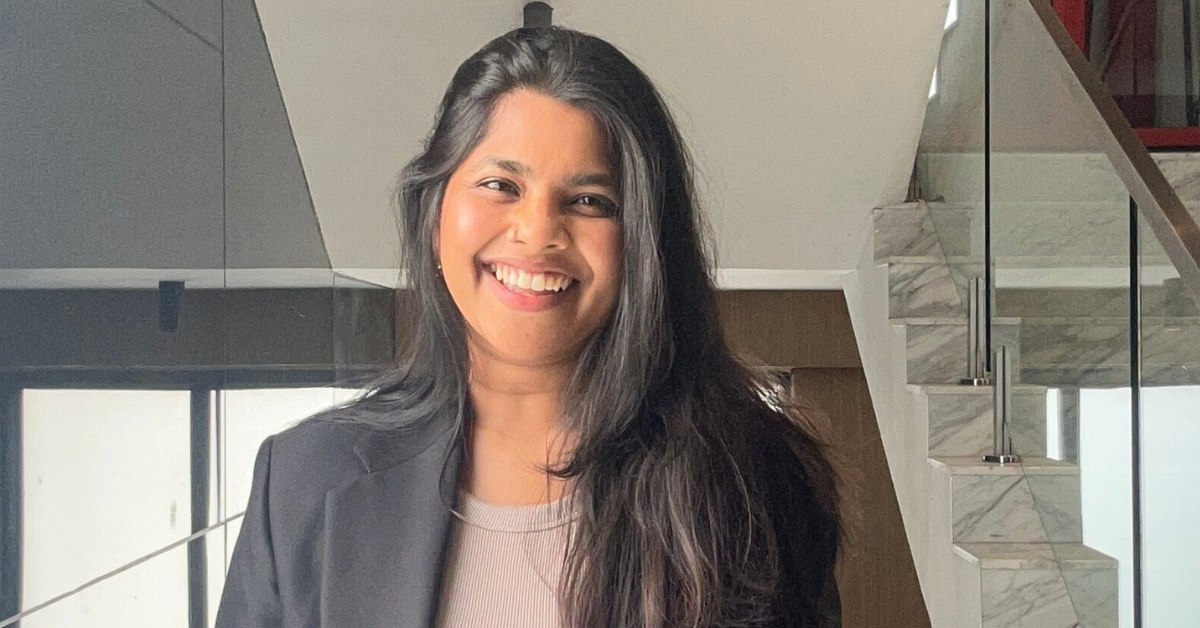 Nishtha Chauhan always wanted to start a food business, but she was looking for something that could help society and the environment
Nishtha Chauhan always wanted to start a food business, but she was looking for something that could help society and the environment
“I always knew I wanted to start something of my own in the food sector. But I did not want it to be just another cafe serving pizzas or fast food. The market is already full of that. I wanted to create something that would not only nourish people but also give back to the environment and support our local farmers. It had to be rooted in purpose and not just profit,” she explains.
Then the COVID-19 waves hit, which brought a pause to her usual routine and gave her a chance to rethink everything. As she watched the world buckle under the weight of disease, lifestyle disorders, and climate anxiety, she could not shake the feeling that food lay at the centre of it all. She began researching nutrition, agroecology, and India’s neglected food heritage.
Her research soon led her to focus on millets and organically grown vegetables, all tied to the idea of a zero-waste lifestyle. “The more I read, the more I realised how powerful these grains are, not just for our health but for the planet too,” she explains. “Millets require far less water and pesticides than conventional crops like rice and wheat. They are resilient, nutritious, and connected to our heritage.”
This understanding birthed a desire to bring these elements together in a thoughtful way.
Cooking with a conscience
She left her full-time engineering job in early 2021 to focus entirely on her research and vision. “It was daunting to step away from the security of a steady career, but I knew I needed to dedicate myself fully if I wanted to create something impactful,” she says.
The following months went into experimentation and learning. The entrepreneur imagined a place where people could rediscover millets and traditional grains not as old-fashioned staples but as exciting, delicious, and sustainable food options. “I wanted a space that would inspire people to rethink their choices, enjoy healthy food that tastes great, and understand the story behind every dish,” she reflects.
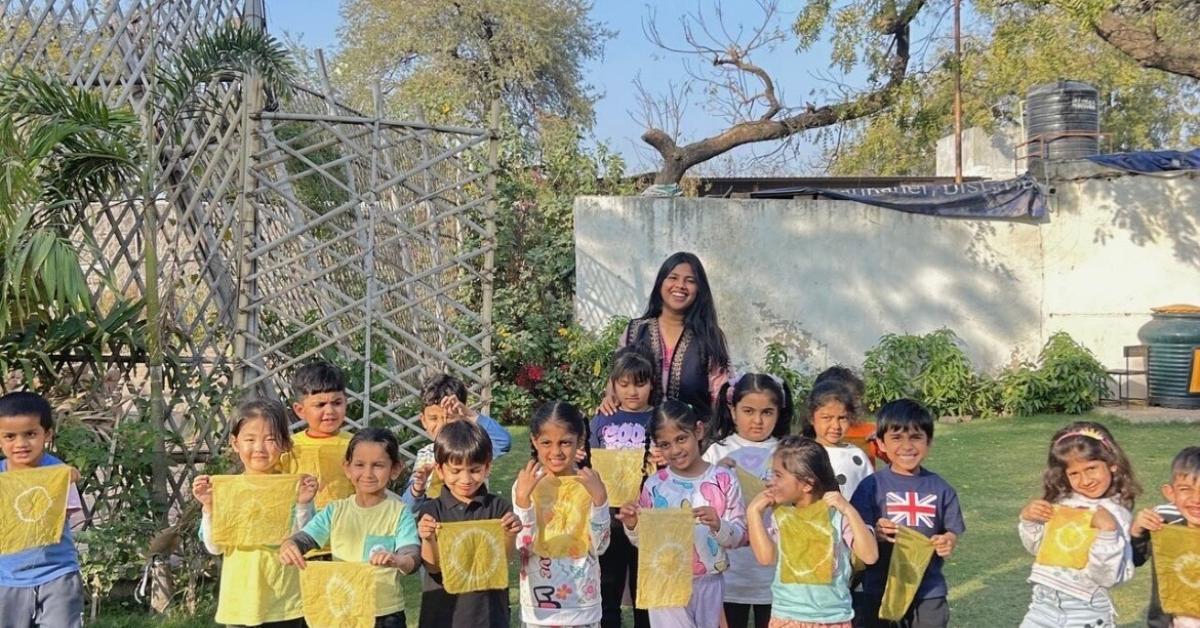 Over the past two years, more than 2,000 young students have attended the healthy eating workshop conducted by Nishtha
Over the past two years, more than 2,000 young students have attended the healthy eating workshop conducted by Nishtha
In December 2021, she opened Cafe Aarambh in the leafy premises of the Centre for Environment Education (CEE) in Ahmedabad’s Thaltej area. Modest in scale but ambitious in philosophy, the cafe runs on a commitment to sustainable sourcing, zero waste, and a return to traditional and wholesome eating.
It’s carefully designed seasonal menu features 15 to 20 millet-based dishes that rotate based on seasonal availability, such as soft ragi dosas, pearl bhel, millet momos, and a popular take on the classic vada pav, served in freshly baked ragi buns.
The meals are presented with the same thoughtfulness that goes into their preparation. Each meal offers the comfort of a home-cooked experience as the meals are served in glassware, completely avoiding plastic or any disposable clutter.
On rare occasions, when single-use containers are needed, such as during takeaways or when food is served at external events, the cafe opts for biodegradable alternatives. Plates and bowls made from areca leaves or bagasse, both fully compostable, guarantee that convenience never comes at the expense of the environment.
“We prefer to keep the menu small,” explains Nishtha. “When you walk into most cafes, you see pages and pages of options. But here, we focus on dishes that are nourishing and connected to local traditions. It also means we avoid over-ordering ingredients or wasting what we cook.”
Zero waste and maximum impact
This intention carries through into the kitchen, where food is prepared each morning in limited quantities. Rather than guessing large numbers, the team carefully estimates how much will be needed, based on previous experience and the season’s demand. If a particular dish runs out before the day ends, it is removed from the menu, and no extra batches are prepared.
The approach is to cut down on wastage and to create a sense of anticipation and appreciation among the cafe’s regulars. People come to the cafe not just to eat, but to be part of a system that values quality over quantity, and freshness over convenience. Each decision, from portion sizes to how leftovers are handled, reflects a larger ethic of responsibility. The leftover vegetable peels and wet waste are turned into compost, feeding the small but spirited kitchen garden.
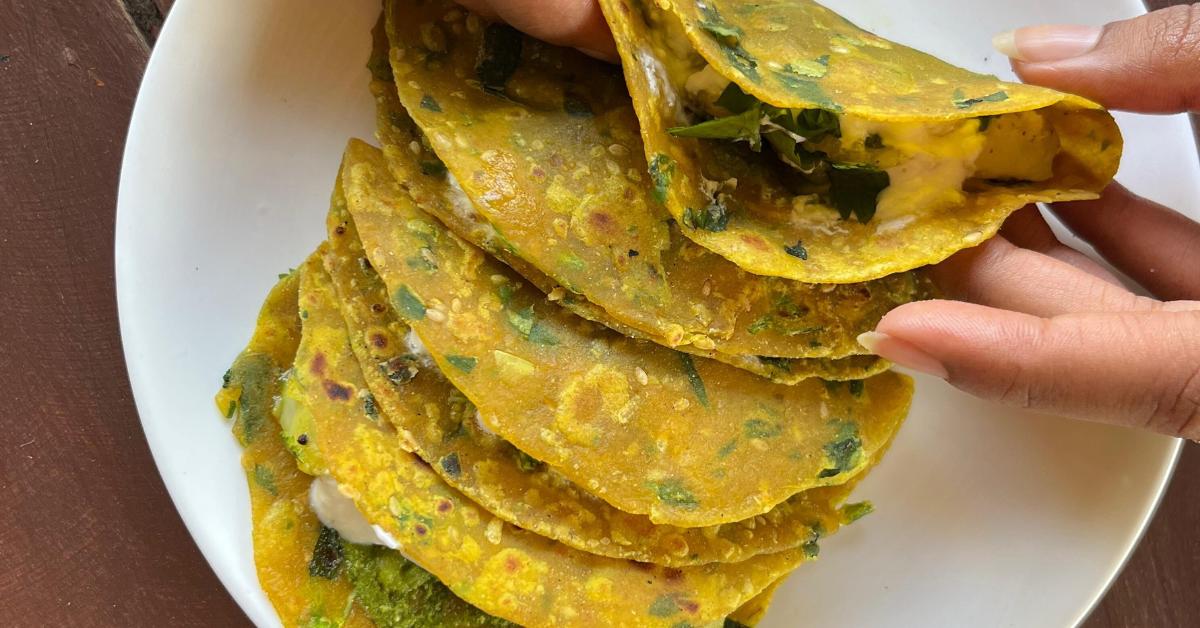 In Cafe Aarambh, food is prepared in small batches so that there is less wastage
In Cafe Aarambh, food is prepared in small batches so that there is less wastage
The founder has also reimagined comfort with the environment in mind. Instead of air conditioners, which consume heavy energy and harm the environment, the cafe uses water-cooling systems and gentle misting fans to keep the space naturally cool, even during Ahmedabad’s hotter months.
“We wanted the cafe to feel like home,” explains the founder. “Air conditioning did not align with our values, so we chose simpler and greener alternatives that are suitable.”
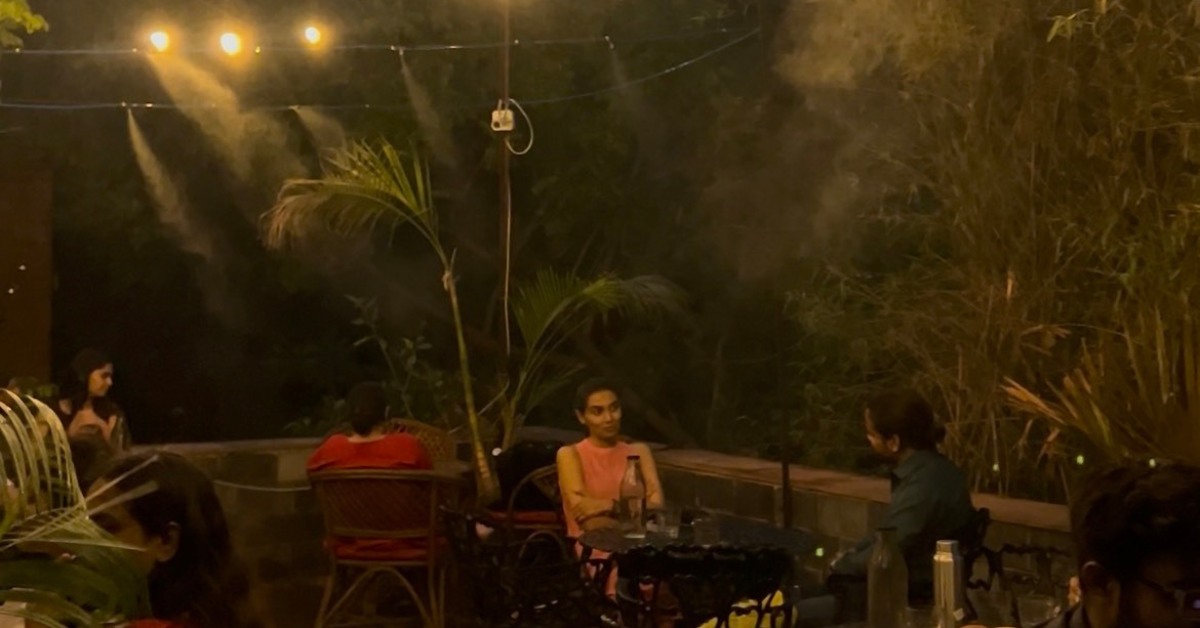 Instead of air conditioners, the cafe uses water-cooling systems and gentle misting fans to keep the space naturally cool
Instead of air conditioners, the cafe uses water-cooling systems and gentle misting fans to keep the space naturally cool
The cafe also avoids disposable tissues. Instead, there is a handwashing station with a handwash and reusable cloth towels. “It is what we do at home,” Nishtha explains. “You wash your hands and use a towel. That is exactly what we wanted to maintain here.”
Training young minds to take care of the Earth
The main factor that sets Cafe Aarambh apart, however, is not just its food, but its purpose. From the outset, the entrepreneur envisioned it as a learning space, especially for children. Partnering with schools such as GEMS Genesis International School, Adani International, and Anand Niketan, it launched a series of immersive eco-workshops aimed at children aged five to eleven. Over the past two years, more than 2,000 young students have taken part in what can only be described as a rewilding of their senses.
During the workshops, children arrive as they are, curious, giggly, often indifferent to the concept of ‘healthy eating.’ They begin by visiting the cafe’s own kitchen garden, where they are taught to touch the soil, identify native herbs like tulsi (holy basil) and brahmi, and harvest spinach, edible flowers, or carrots.
They then step into the kitchen, washing fresh vegetables and observing the staff as they chop and prepare the ingredients. Guided by the team, they assemble their own salads and millet-based snacks, gaining hands-on experience. They even get the chance to work with local fruits and herbs, using methods like cold-press juicing to create fresh drinks. They also take part in sound healing and aromatherapy sessions before sitting down to eat mindfully.
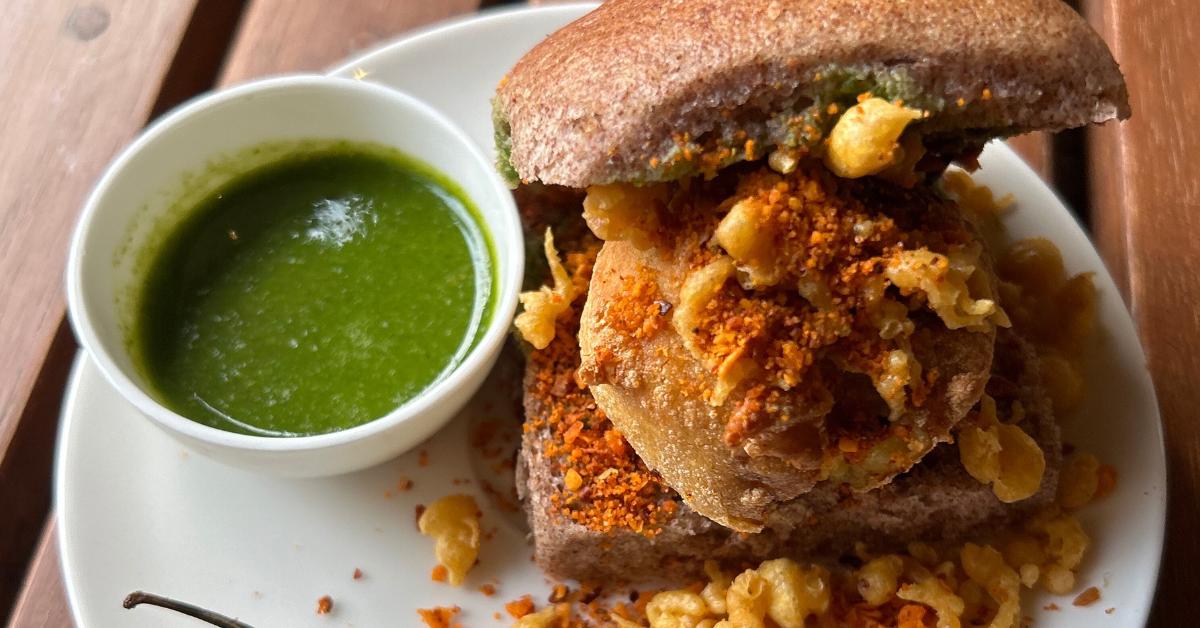 The classic vada pav is made from freshly baked ragi buns in the cafe, and it is very popular among customers
The classic vada pav is made from freshly baked ragi buns in the cafe, and it is very popular among customers
The result of these workshops is worth noting. “Children come in scrunching their faces at ragi and vegetables, and they leave asking their parents for millet khichdi at home,” says the founder of the cafe. Teachers report long-term behavioural changes in students who attended the workshops; some started home composting, others began reading food labels before purchasing snacks.
Gradual small steps towards a healthy lifestyle
Jahnavi shares that the workshop completely changed the way she thinks about food and the environment. “I learnt that millets are super healthy and need much less water to grow, so they are good for the Earth too,” she says enthusiastically. She appreciates the knowledge and the atmosphere of the cafe. “What I like most is the warmth, love and care with which I was treated during the session. Everyone tried to help me out whenever I faced a problem,” she adds.
Since the workshop, she says, “I realised how important it is to have different, healthy food options, and that nutrient-rich food can actually taste good.”
“When we eat local food like millets and avoid wasting anything, we save water, support our farmers, and reduce the amount of waste we create. I also learnt that we can grow some vegetables right on our balcony, which means we can enjoy fresh and organic food instead of depending on produce filled with chemicals,” she explains.
Kabir, who was introduced to the workshop by his father, goes on to share how the vegetable garden became his favourite part. “I love seeing all the different plants and picking vegetables myself,” says the eight-year-old.
“It is fun to see how food grows. I have never done that before, but I want to use the information I picked up here and implement it at home,” he shares. The workshop also got him thinking more about the choices he makes when eating. “Now, I try to look for healthy options instead of unhealthy snacks like chips and chocolates,” he says.
Both children enjoy activities that connect them directly to the earth, whether it is plucking vegetables, exploring plants, or making their own fresh juice. Locals, families, and passers-by often step into the cafe expecting a quick, healthy meal and leave with questions about sourcing, cooking, and sustainability. Staff members are trained not just to cook and clean, but to engage with visitors, answering questions and encouraging small lifestyle changes.
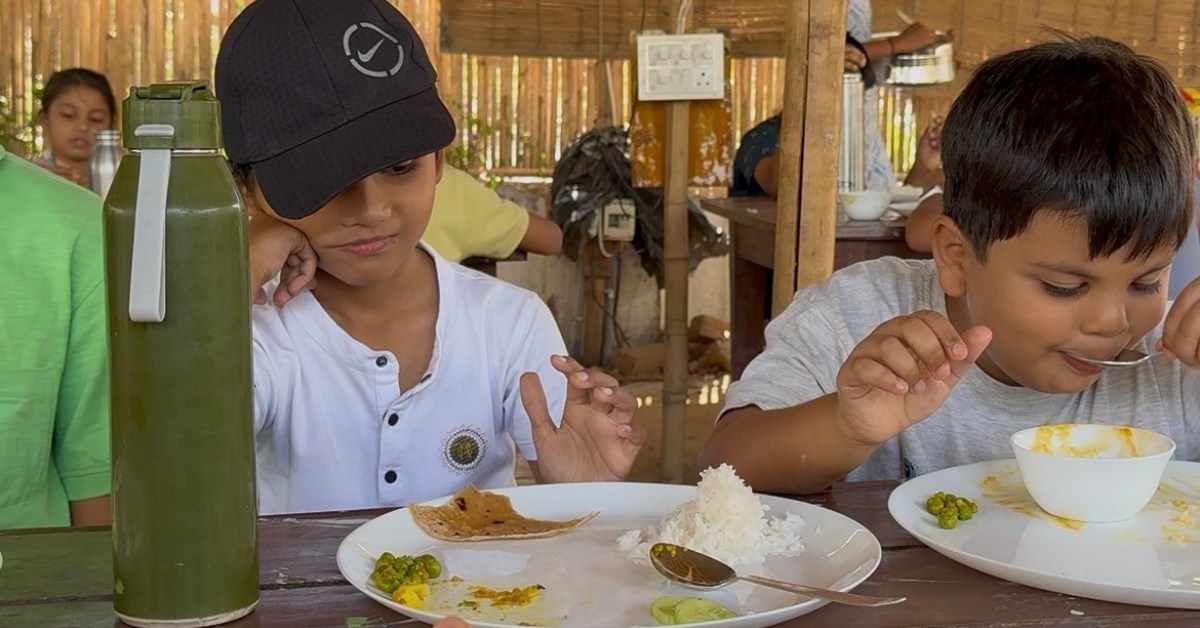 The children who attend the workshops understand the importance of mindful eating and follow the same at home
The children who attend the workshops understand the importance of mindful eating and follow the same at home
And the environmental impact is tangible. In just under four years, Aarambh has prevented approximately 1.7 tonnes of plastic waste from entering landfills by eliminating single-use plastics. Alongside this, the cafe saved 28.3 tonnes of carbon dioxide emissions by avoiding the use of air conditioning and reduced a further 17.3 tonnes of CO2 by sourcing supplies locally within 1,000 kilometres.
In total, these efforts amount to a reduction of 47.3 tonnes of plastic waste and carbon emissions, equivalent to planting over 2,300 trees or taking more than 10 cars off the road for an entire year.
From Earth to table, and back again
Cafe Aarambh was started using the founder’s savings, without any external funding or investors. It has grown into a financially sustainable venture, now generating approximately Rs 12 lakh in monthly revenue across its two outlets.
The first cafe was set up in Thaltej, within the campus of the Centre for Environment Education (CEE). Building on the success of their first outlet, it has now expanded to a second location at Sola Bhagwat, situated within the premises of the Bhagwat Vidyapeeth Mandir.
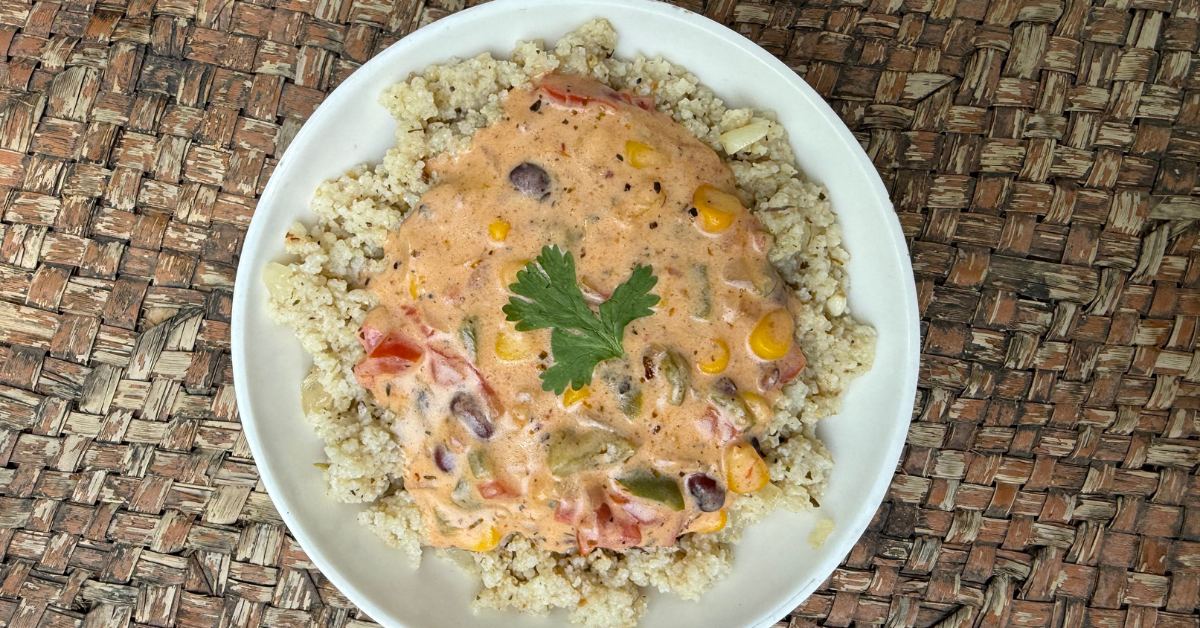 All the millets required to prepare the dishes are procured from local farmers
All the millets required to prepare the dishes are procured from local farmers
In this cafe, nestled among neem trees and buzzing bees, a massive change is happening, and it does not rely on Instagram trends or celebrity endorsements, but on trust, taste, and tradition. Children like Jahnavi and Kabir are its torchbearers. They are growing up not just aware of climate change and wellness, but equipped to act.
“I try to make my own healthy lunch by adding veggies and fruits,” Kabir beams. “I do not throw anything away. I even advice my friends to follow the same so they can be healthy too.”
That may not sound like a grand declaration, but for Nishtha, it is everything. “Food is our most intimate relationship with the earth,” she says. “If we can teach children to honour it, we can change the world.”
All photos courtesy Nishtha Chauhan
News